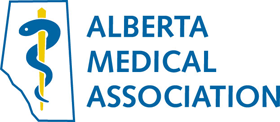Physician Advocacy
Advocacy is an important component of the doctor-patient relationship and physicians should individually and collectively advocate with their patients. Advocacy involves the responsible use of expertise and influence to advance patients health care interest.
There is a desire and need within Alberta to develop an environment wherein physicians are educated and appropriately engaged in the process of advocating for their patients. The resources on this page are designed to assist physicians who are considering advocacy work and were developed as a result of the 2012 HQCA report on physician intimidation that found physicians did not feel they had the right skills or resources to act as effective advisors.
A joint approach
Following the findings of the HQCA report the AMA, AHS and CPSA are spearheading a provincial tri-lateral initiative, working in consultation with the faculties of medicine and the medical officers of health, to address physician advocacy. Each partner and the physician have specific roles, responsibilities and expectations, which you can read in the documents linked below.
Read the AMA, AHS and CPSA joint statement regarding joint advocacy resources.
Resources
The routes and methods to effective advocacy are not always clear, nor should advocacy be entered into lightly. The following resources can help physicians be better advocates, as well as understand the roles and responsibilities of the players involved.
Questions to ask yourself
The Canadian Medical Association has developed this list of 11 considerations to take before engaging in advocacy:
- Is this an area or issue that affects health, medical and patient care directly or indirectly?
- If the advocacy activity is successful, will the anticipated change or outcome, improve the situation and have a beneficial impact on patient care or access to care?
- Have I considered what a “reasonable outcome” might be and “potential trade-offs” that may need to be considered with respect to my advocacy effort?
- Are there other partners, such as physician colleagues or other health care providers, organizations or patient and family groups, who might want to be involved, or who will be directly impacted? Should they be consulted prior to undertaking the activity?
- Could the advocacy be perceived as a “potential conflict of interest”? Am I directly or indirectly benefiting from the advocacy?
- Prior to making concerns publicly known, are there internal communications that should occur first?
- Can the issue be resolved satisfactorily in a private versus a public manner? Is there a specific benefit to the public being made aware of the issue?
- Am I fully confident that I have made a reasonable effort to obtain the relevant and salient facts about the situation? Do I need to gather more information before undertaking the activity?
- Am I at risk of divulging any private or confidential information without first seeking the consent of the patients or parties involved?
- How will the activity impact those with whom I work and the facility where I practice? If there is likely to be a negative impact, is there anything that can be done to mitigate this prior to undertaking the activity?
- If speaking on behalf of a group or organization, do I have the necessary authority to speak on behalf of others? If not, have I adequately communicated that my comments are not being made on behalf of others?
What Should Physicians Expect when Advocating?
- The advocacy is delivered and received in a respectful and professional manner.
- The advocacy is acknowledged as a valued and legitimate part of a physician’s role and responsibility.
- The advocacy should be well thought out, clear in purpose and supported by data and facts.
- Potential conflicts of interest are acknowledged and mitigated, where possible.
- The advocacy should be balanced in the sense that potential tradeoffs and the bigger picture are acknowledged.
- The decision-making process and rationale for a decision is clear and transparent.
- There is a timely response and there is verbal and or written follow-up to the advocacy. (e.g. a written advocacy input should receive a written response)
- If the advocacy effort is rejected, there should be a clear explanation.
- Respect, when advancing the advocacy to the next or new level.
Stuck along the way? Want to map out a path to effective advocacy? This decision tree can help you determine where you are and what you need to do.
Learn more about the goals and principles of the Physician Advocacy Policy.
Clear roles and responsibilities support and promote effective advocacy. The Roles and Responsibilities document details the roles and responsibilities of:
- the Alberta Medical Association
- Alberta Health Services
- The College of Physicians & Surgeons of Alberta
- Zone Medical Staff Associations
- The Faculties of Medicine
Advocacy Mentors List
The following is a list of mentors who may be contacted for support and advice to advocating physicians.
Alberta Health Services
Dr. Robert Broad
[email protected]
Dr. Lloyd Maybaum
[email protected]
Dr. Rollie Nichol
Associate Chief Medical Officer
[email protected]
Alberta Medical Association
Shannon Rupnarain
Executive Vice President, Public Affairs
780-482-0322 [email protected]
Christine deMontigny
Senior Director, Programs and Integration, Professional Affairs
780.482.0320 [email protected]
College of Physicians & Surgeons of Alberta
Dr. Scott McLeod
Registrar
780.969.4969 [email protected]
Gail Jones
Executive Assistant
780.969.4970 [email protected]
Dr. Karen Mazurek
Deputy Registrar
Continuing Competence
780.969.4957 [email protected]
Kimberley Murphy
Executive Assistant
780.392.3109 [email protected]
Dr. Michael Caffaro
Assistant Registrar
Professional Conduct, Complaints Director
780.969.4971 [email protected]
Lea Lacroix
Executive Assistant
780.969.4956 [email protected]
Dr. Susan Ulan
Assistant Registrar, Registration
780.969.4940 [email protected]
Allison Porter
Executive Assistant
780.969.4928 [email protected]
Adele Gendron
Hearings Director Assistant
780.969.5015 [email protected]
Dr. Jeremy Beach
Assistant Registrar
Physician Wellness
780.969.4940 [email protected]
Charlene Hiemstra
Executive Assistant
780.969.4941 [email protected]
Calgary and Area Medical Staff Society
Dr. Scott Beach
President CAMSS
[email protected]
South Zone Medical Staff Association
Dr. Jessica Abraham
Vice-President
[email protected]
Fredrykka D. Rinaldi
President, South Zone Medical Staff Association
[email protected]
University of Alberta
Dr. Raj Sherman
Clinical Lecturer, Department of Emergency Medicine, Faculty of Medicine & Dentistry
[email protected]
Dr. Louis Francescutti
Professor, School of Public Health
[email protected]

